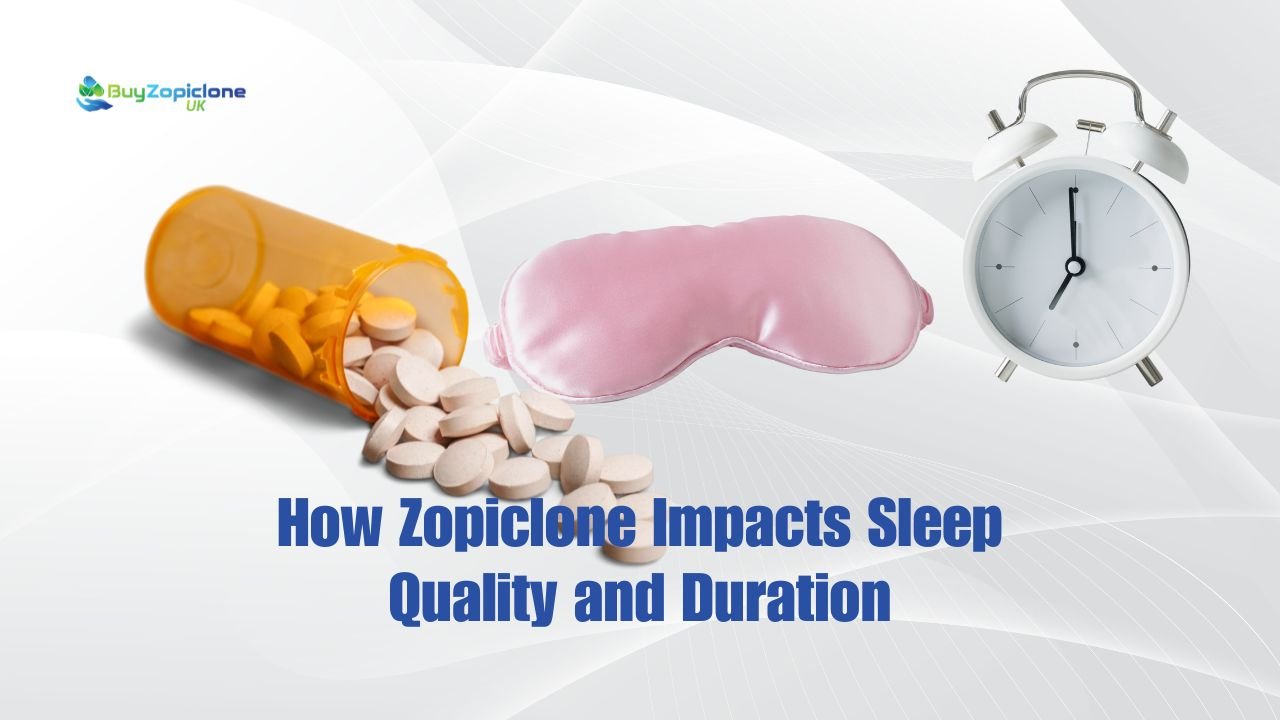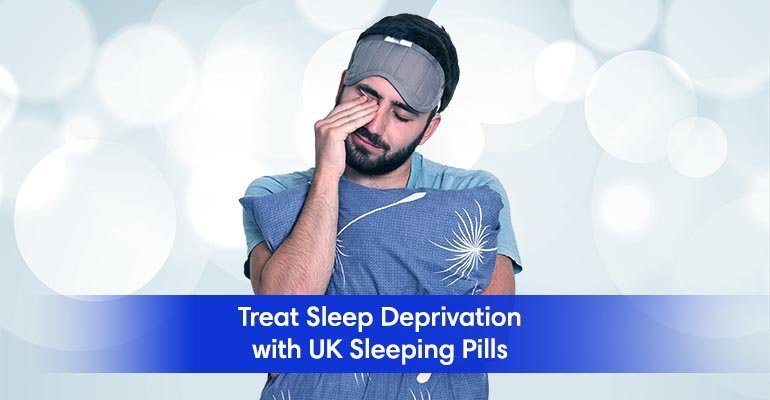Sleep is one of the most important pillars of health, yet millions of people worldwide struggle with insomnia and disrupted sleep patterns. For many, Zopiclone has become a prescribed solution to manage sleep problems. But how exactly does Zopiclone affect sleep quality and duration? In this article, we will break down how this medication works, its benefits, potential risks, and what you should know before using it.
What is Zopiclone?
Zopiclone is a non-benzodiazepine hypnotic medication commonly prescribed for short-term treatment of insomnia. It belongs to a class of drugs known as “Z-drugs,” which also includes zolpidem and zaleplon.
Unlike traditional sleeping pills, Zopiclone is designed to act quickly and reduce the time it takes to fall asleep. It works by enhancing the activity of GABA (gamma-aminobutyric acid), a neurotransmitter that calms brain activity and promotes relaxation.
How Zopiclone Improves Sleep Quality
When discussing sleep quality, we are not only looking at how fast you fall asleep, but also the depth and restorative value of sleep. Here’s how Zopiclone contributes:
1. Faster Sleep Onset
Zopiclone significantly reduces sleep latency, which means it helps people fall asleep faster. This is especially beneficial for those who lie awake for hours struggling with racing thoughts.
2. Longer Sleep Duration
One of the key benefits of Zopiclone is that it helps users stay asleep throughout the night. By reducing nighttime awakenings, it ensures a more continuous and refreshing rest.
3. Improved Sleep Stages
Studies suggest that Zopiclone can increase deep sleep (slow-wave sleep), which is the most restorative phase of sleep. This helps with memory consolidation, physical recovery, and mental clarity the next day.
4. Better Morning Alertness
Because it promotes more consolidated and natural-like sleep, many users report feeling more refreshed and alert upon waking compared to traditional sedatives.
How Long Does Zopiclone Keep You Asleep?
The average duration of action of Zopiclone is 6–8 hours, making it ideal for people who need a full night’s rest. The half-life (the time taken for half of the drug to leave the body) is around 5 hours, meaning its effects last through the night without causing excessive grogginess in the morning.
However, its effects may vary depending on:
-
Dosage (3.75 mg, 7.5 mg, or higher as prescribed)
-
Individual metabolism
-
Other medications or alcohol intake
-
Age and overall health
Also Read: How Much Sleep Do You Really Need for Good Health?
Possible Side Effects on Sleep
While Zopiclone can improve sleep quality, it’s important to be aware of potential drawbacks:
-
Next-day drowsiness if taken late at night or at a high dose
-
Bitter or metallic taste in the mouth
-
Memory issues when combined with alcohol or taken improperly
-
Dependence or tolerance if used long-term beyond the recommended duration
Doctors usually prescribe Zopiclone for 2–4 weeks only, as prolonged use may reduce its effectiveness and increase the risk of dependence.
Who Should Use Zopiclone?
Zopiclone may be suitable for individuals who:
-
Have short-term insomnia caused by stress, jet lag, or lifestyle changes
-
Wake up multiple times during the night
-
Struggle with sleep initiation despite good sleep hygiene practices
It may not be suitable for:
-
Pregnant or breastfeeding women
-
People with a history of substance abuse
-
Those with respiratory disorders like sleep apnea
-
Individuals taking other sedatives or strong painkillers
Safe Use of Zopiclone for Better Sleep
To maximize the benefits of Zopiclone while minimizing risks, here are some safety tips:
-
Follow the prescribed dosage – typically 3.75 mg for older adults and 7.5 mg for adults.
-
Avoid alcohol – mixing alcohol with Zopiclone can amplify sedative effects and cause dangerous side effects.
-
Take only when needed – do not use it every night unless prescribed by your doctor.
-
Combine with sleep hygiene – use Zopiclone alongside lifestyle changes such as a regular sleep schedule, limiting screen time, and avoiding caffeine in the evening.
-
Do not stop suddenly – tapering under medical supervision is recommended to avoid withdrawal effects.
Zopiclone vs Natural Sleep
While Zopiclone mimics natural sleep by enhancing GABA activity, some differences remain. For example, prolonged use may slightly alter the balance of REM sleep (dream sleep). Natural sleep also comes without the risk of dependency.
That’s why many healthcare providers recommend using Zopiclone only as a short-term solution while addressing the root causes of insomnia through lifestyle and behavioral therapies.
Key Takeaways
-
Zopiclone helps you fall asleep faster and stay asleep longer.
-
It promotes deeper, more restorative sleep, improving next-day alertness.
-
Its effects last about 6–8 hours, making it suitable for overnight use.
-
Safe, short-term use can significantly improve sleep quality and duration, but long-term reliance carries risks.
-
Always use Zopiclone under medical supervision and combine it with good sleep hygiene practices.
Final Thoughts
For individuals battling insomnia, Zopiclone can be a valuable tool to restore healthy sleep patterns. By shortening the time it takes to fall asleep and extending rest duration, it can significantly enhance overall sleep quality. However, it is most effective when used responsibly, in the short term, and alongside lifestyle improvements.
If you are struggling with ongoing sleep problems, consult a healthcare professional to determine whether Zopiclone is the right choice for you.
Also Read: How does zopiclone compare to other sleep aids in effectiveness and safety





